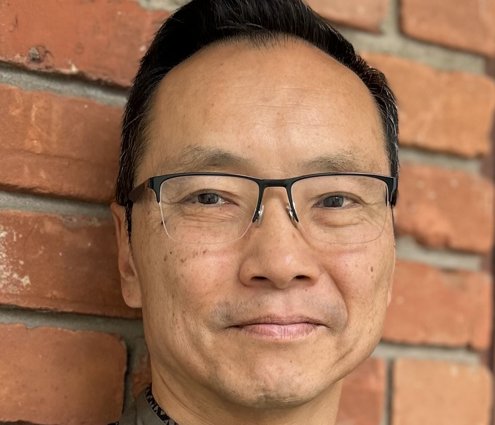Reading time: About 2 minutes
Wayne Ng says the biggest obstacles to most writers are internal ones — largely the fear of rejection and public ridicule. “Explore this,” he says. “We all have it.”
Wayne Ng is a child of Chinese immigrants born in Anishinabe territory in what is commonly known as downtown Toronto. He has lived in Ottawa for most of his life. As a social worker for more than 30 years, he describes himself as someone who has, “worked with many courageous people facing extraordinary challenges.” But his true passion is writing, which he now pursues full-time.
Wayne Ng says he finds the most fulfillment in the intersection of writing and social work, as it allows him to delve into the most private and vulnerable aspects of people’s lives and infuse these experiences into his characters and settings. “It’s a privilege to honour and authenticate their lives through my writing,” he says.
I was excited to talk to Wayne about how he approaches writing.
Q. Roughly how much time do you spend writing every day?
A career in writing involves much more than generating words. There’s research, development, sales and promotion, touring, and literary community building exist. That in itself is a full-time job. But if you mean words on a page, if I’m in first draft or revision mode, I can lose myself for 8-12 hours, more if there are deadlines.
Q. What’s a simple activity or habit that makes you a better writer?
Walks in nature. Often with a podcast about writing or working through my work.
Q. What interferes with your writing?
Interferes is a strong word. But I’d say life outside of writing interrupts my writing. Admittedly, I’m imbalanced as I devote myself to writing full-time and don’t take many days off. And I love it.
Q. How do you persuade yourself to sit down to write on days when you really, really DON’T feel like doing it?
We’ve all been there, and there’s nothing wrong with a mental health day. If you need so many that writing just isn’t happening, then you need to be honest and ask yourself why? Time and fatigue are often reasons, but as a social worker, I know often the biggest obstacles are internal, such as fear of rejection and public ridicule. Explore this. We all have it.
Q. Is there a particular motto or saying that you’ve found helpful for writing?
“No tears in the writer, no tears in the reader. No surprise in the writer, no surprise in the reader.”- Robert Frost.
To me, it speaks to recognizing that writing is very much an emotional process. It might involve working through difficult things, but if you can’t, ultimately, it shows in your characters.
Q. Which stage of the writing process do you enjoy the most: researching, writing or editing/rewriting and why?
I love the hunt: for the tight plot, the multi-dimensional character, well-balanced exposition, anything… associated with the creative side.
Q. What’s the best book you’ve read (either fiction or non) in the last five years?
There is no tougher question. The Vanishing Half by Brit Bennett. I’m drawn to stories of escaping and finding oneself. I’d argue that most stories are identity stories and ask where do we belong, with whom and where we’re going.
Q. What book are you reading right now?
Michael Christie’s Greenwood. I like to sink into books that have some similarities to current projects. In Greenwood, there are reasons he’s so lauded. It starts as climate fiction, as is my current work-in-progress.
Q. What do you think is the biggest misperception that new writers have about the act of writing?
It’s not easy and is only about writing/the creative side. It’s very mental: one needs discipline, focus, emotional intelligence, and resilience.


